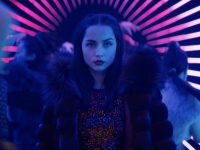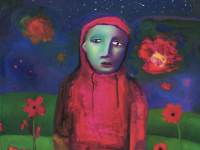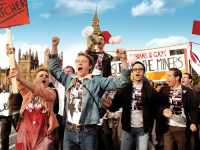
Dystopia: “an imagined place or state in which everything is unpleasant or bad, typically a totalitarian or environmentally degraded one. The opposite of Utopia.” (Oxford Dictionary)
1. The Hunger Games (2012)
Currently one of the world’s most successful dystopian narratives on paper and on screen, The Hunger Games is a well-known entity. Set in a society enslaved to its Capitol, the visceral uprising and glamorised violence makes for potent watching. A clever twist to this narrative is the direct link the viewer has with the passive dystopian society of Panem. As we, the paying public, indulge ourselves with watching the series, there is no difference to the thousands we see on screen watching the same plot unfold. The final twist that makes us realise this duality, as we and the fictional society call enough on the horrors of war, prove it’s right to the top spot.
2. Nineteen Eighty-Four (1984)
Inspired by Yevgeny Zamyatin’s We and Aldous Huxley’s Brave New World, the Orwellian classic Nineteen Eighty-Four was created. It is a masterpiece that likely informed our current perception of dystopia more than any other. Masterfully acted by John Hurt, the film captures beautifully the sentiments and austere horrors of the book. However, the film itself, while an important study and executed to perfection, does not have the levels of audience accessibility and success that The Hunger Games has enjoyed.
3. Total Recall (1990)
A titan of the sci-fi genre, it is perhaps less equated with dystopia. However, it carries all the hallmarks, as the Martian colony is manipulated by those in control of the oxygen. While the main plot is a direct dystopia, the underlying worry that Quaid cannot tell which society is reality is every part as disturbing.
4. Wall-E (2008)
Heartwarming protagonists and interstellar adventures make Wall-E a hit for all ages. However, it is the subtle dystopian undertones of commercialism and obesity that really give the story its substance. Displaying issues relevant to our current society, Wall-E uses dystopia to send a pertinent message rather to than shock or horrify.
5. V for Vendetta (2006)
Carbon-copied from the Third Reich and with a touch of Nineteen Eighty-Four, this film does not break much new ground, but as a simplified portrayal of dystopia, it achieves its goals. Hugo Weaving, Natalie Portman, John Hurt and Stephen Fry are captivating caricatures presenting a colourful story that keeps you engaged till the end. Lacking the bleaker tone of other dystopian films, V for Vendetta consciously uses the genre as a platform for entertainment rather than to send a message.
Author – Joe, Bath Store





